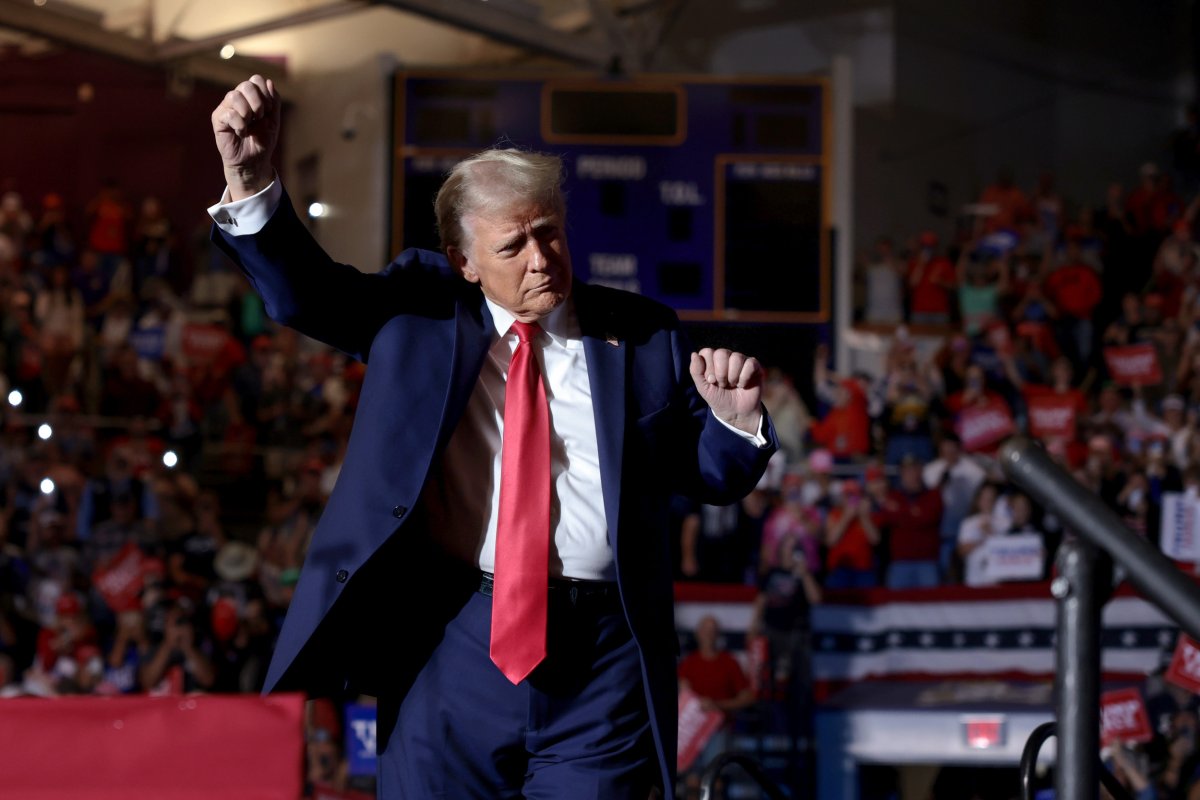Podcaster Ezra Klein said Tuesday that he did not believe former President Donald Trump's problem was his age, and that he is simply voicing what many fear to say out loud.
The Republican presidential candidate's style since the early days of his 2016 race has been outspoken and in contrast to the way many political leaders speak on issues, from immigration to the economy to foreign affairs.
In recent weeks, Trump's speech has been under scrutiny by his rival, Vice President Kamala Harris, and her running mate, Minnesota Governor Tim Walz, who have questioned his cognitive state and suggested he is too old to be president, after a series of verbal slips and a 40-minute musical pause at a rally in Pennsylvania.
Klein is a prominent American journalist, political commentator, and co-founder of the news and opinion website Vox. Known for his expertise in policy analysis and thoughtful, nuanced takes on complex political and social issues, Klein has written extensively on topics ranging from health care reform to political polarization.
Speaking on his podcast The Ezra Klein Show for the New York Times, Klein said he did not believe age was necessarily the issue for Trump, instead claiming the 78-year-old simply moves through the world without the barriers many others have.
"Trump moves through the world without the behavioral inhibition most of us labor under," Klein said, after stating the Republican showed signs of being low on conscientiousness but high in disinhibition.

Klein went on to look at Trump's political career over the best part of a decade to back up his view that he had not necessarily declined in the ways his critics were suggesting but had always said what was on his mind.
"One of Trump's verbal tics is to say, 'Many people are saying.' But it's the opposite," the host said. "He's saying what many people want somebody to be saying. He's saying what people are saying in private but often are not saying in public."
Klein pointed to the early days of the 2016 race when Jeb Bush looked likely to become the nominee. The former Florida governor and younger brother to George W. Bush had the backing of many high-ranking Republicans at the time, but Trump came along and said what many of them had been afraid to say.
"George Bush made a mistake. We can make mistakes, but that one was a beauty. We should have never been in Iraq. We have destabilized the Middle East," Trump said in a debate in February 2016.
Klein said this comment was like others Trump had made – on immigration, on free trade, on China's relationship with the U.S. – where he said out loud what those in Washington, D.C., had been afraid to say.
The podcaster said this was also true for the public, in that many would have held themselves back from speaking out on issues they felt strongly about in the workplace or at home.
Trump's skill with speaking his mind was also a flaw, Klein went on to say, as it meant the Republican did not necessarily have the ability to think strategically and carefully about what comes out of his mouth.
"Trump does not see beyond himself and what he thinks and what he wants and how he's feeling," he said. "He does not listen to other people. He does not take correction or direction.
"Wisdom is the ability to learn from experience, to learn from others. Donald Trump doesn't really learn."
Trump has essentially run on the same policies since he first ran for office, with no change to the GOP's platform for his 2020 run and a smaller document in 2024 promising very similar plans.
Vice President Harris and Governor Walz have raised concerns about Trump's rhetoric around the attack on the U.S. Capitol on January 6, 2021, as well as his comments on the "enemy within" in recent weeks when asked about election interference.
During his term in the White House, as well as on the campaign trail in 2024, he has openly mused about using nuclear weapons, pulling out of NATO, and speculated about treatments for COVID-19.
One of the main issues Klein raised was around the 2020 election results, and Trump's seemingly ongoing refusal to admit he lost.
"Most of the people who serve in politics are patriots. They understand that the peaceful transition of power is sacred and that their ambition is profane," Klein said. "But even the politicians who are not patriots recognize the likely outcome of fighting the results of a fair election: dishonor, defeat and possible prosecution.
"Trump did not care. He was unrestrained by those inhibitions."
Newsweek reached out to the Trump campaign for comment via email Tuesday morning.



















:quality(85):upscale()/2024/04/24/878/n/3019466/36c5693c662965c5d1ce91.72473705_.jpg)
 English (US) ·
English (US) ·